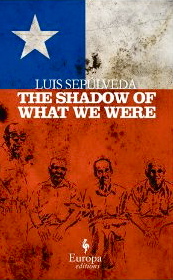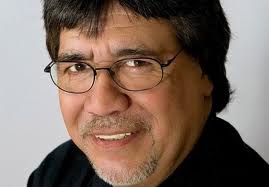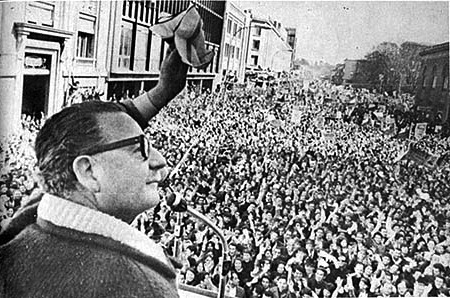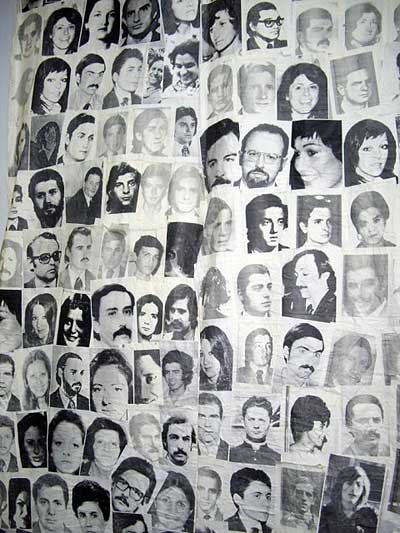Note: This novel was WINNER of the Premio Primavera for Spanish Literature in 2009.
“In 1995, a number of photocopies were sent anonymously to the [Chilean] government: checks issued by the army to a son of the dictator in the amount of three million dollars, a [relative] pittance… It was a test: I wanted to know if the newly restored Chilean democracy could be trusted. We all know the answer to that: Pinochet sent troops into the streets.”
I was sty mied by this short book at first, and even after completing it, I was not sure exactly what I had read, though I recognized that humor and dark irony were at the root of much of the novel. It was not until I had spent considerable time looking up the story of the author’s own life, and the historical events in Chile with which he had been involved, that the full impact of this novel became clear. How anyone who suffered so much could retain any semblance of humor, no matter how dark, is an amazing tribute to the human spirit. Ultimately, I found this to be one of the most interesting novels I have read in a long time, but it is complex, in part because of its brevity, and in part because there is no introduction which provides the background which many non-Chilean readers, such as myself, may want or need to appreciate this book fully.
mied by this short book at first, and even after completing it, I was not sure exactly what I had read, though I recognized that humor and dark irony were at the root of much of the novel. It was not until I had spent considerable time looking up the story of the author’s own life, and the historical events in Chile with which he had been involved, that the full impact of this novel became clear. How anyone who suffered so much could retain any semblance of humor, no matter how dark, is an amazing tribute to the human spirit. Ultimately, I found this to be one of the most interesting novels I have read in a long time, but it is complex, in part because of its brevity, and in part because there is no introduction which provides the background which many non-Chilean readers, such as myself, may want or need to appreciate this book fully.
Chileans, of course, will be well familiar with the abuses of power that are endemic to authoritarian rule, and they will also know of the interrelationships among various political factions and the opposing factions which are in constant conflict here. At the heart of the novel is the government of Salvador Allende, a socialist who had run for President of Chile three previous times before he won the election of 1970 in a close three-way race. Allende, a physician, promised better health care, among other things, and he immediately began nationalizing industries and implementing socialist goals. He was vigorously opposed by the right, by the judiciary, and eventually by the army (not to mention the Nixon administration, concerned by the takeover of mines which had been owned by US companies). Eventually President Allende was overthrown by the army, under General Augusto Pinochet, on September 11, 1973, a date that echoes throughout this novel. His body was found in the Presidential Palace, where he had purportedly committed suicide.

The characters in this novel, and the author himself, had been young liberal Socialists who had believed in Allende’s goals to return government to the people, and the author himself had worked with the healthcare initiatives of the Allende government. When General Augusto Pinochet seized power, however, he kept the country under military law, arresting many and “disappearing” others from 1973 – 1990. The author endured two and a half years in a Chilean prison. Like all five of the characters in the novel, he spent many years in exile after that, before eventually returning to Chile.
When the novel opens, four former supporters of Allende, now old men, have gathered in Santiago at the behest of “the Shadow,” a particularly well organized and intelligent man who hopes these former rebel-anarchists will work with him to commit a robbery which will not only provide them with hundreds of thousands of dollars but also with real evidence which can be used by the courts against the military and others who looted the country in the years after Allende. The four characters, all ordinary men, feel connected to each other philosophically and in no way connected to the country as it presently exists, and they plan to gather on July 16, the anniversary of the date on which the Shadow’s grandfather and four friends committed the first bank robbery in Chile in 1925. The spoils of that robbery were to “bring happiness to the wretched of the world,” just as the presently planned robbery would provide a way to recoup the riches secreted by the military and others in private bank accounts between 1974 and 1980.
In the lead-up to th e planned robbery, the men chat about how they returned from exile to a country they no longer recognized, about their memories of life before and after Pinochet, about those among family and friends who have “disappeared.” They discuss the divisions within the Socialist party which prevented them all from keeping the country on a socialist path under Allende, and they comment on what they think might be the possible involvement of the US and the CIA in the overthrow of Allende.
e planned robbery, the men chat about how they returned from exile to a country they no longer recognized, about their memories of life before and after Pinochet, about those among family and friends who have “disappeared.” They discuss the divisions within the Socialist party which prevented them all from keeping the country on a socialist path under Allende, and they comment on what they think might be the possible involvement of the US and the CIA in the overthrow of Allende.
Then they discover, in one of the darkest, most ironic, and black-humored coincidences imaginable, that the Shadow, for whom they have been waiting, is dead. They will have to act on their own, despite their physical and mental limitations, if they are to free themselves from the past. “Freedom is a state of grace, but only if you’re free when you fight for it.”

The novel is intriguing, not only for its perspective and its view of Chilean history, but also for its surprising humor, however dark. As one character says, “There is no screw-up that could not be overcome with a good laugh.” Ironies add further to the humor, as an honest police detective and his partner investigate the death of the Shadow. The novel does, however, depend on knowing some of the history of Chile, its leaders, and its military, along with the peripheral history of western governments as they have related to Chile during the past forty years, especially during the Nixon years when the fear of communism was paramount. A fascinating novel (and cautionary tale), well worth taking the time to explore.
Note: On January 27, 2011, the New York Times reported that a Chilean judge has, after 38 years, opened the first investigation into the death of President Salvador Allende in 1973. http://www.nytimes.com. On November 10, 2008, the youngest son of General Augusto Pinochet was arrested and charged with tax fraud related to $17 million uncovered in secret bank accounts. http://www.reuters.com. ( I have not found any follow-up to this arrest, though earlier charges from 2007 were dismissed.)
Photos, in order: The author’s photo is from http://www.lexpress.fr
The photo of Salvador Allende waving to the crowd is from http://uspolitics.tribe.net
The photo of a few of the “desaparacidos” under the Pinochet rule is from http://www.samsherwood.co.uk
